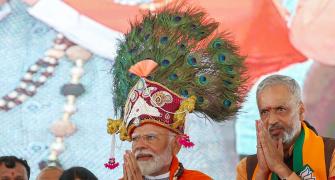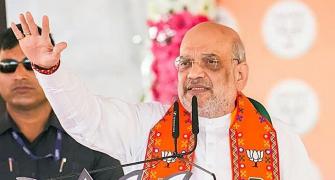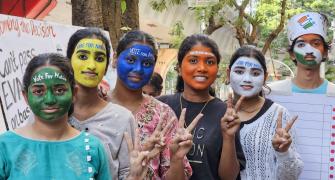The controversial second report of Bihar Governor Buta Singh, which led to the dissolution of Bihar Assembly, on Wednesday came in for scrutiny before the Supreme Court as regards its date and timing.
The assent by President A P J Abdul Kalam from Moscow to the Cabinet's decision recommending the dissolution raised questions.
After it was brought to the notice of the court that the May 21 report of the governor contained a news report of May 22 relating to a split in Lok Janshakti Party as an annexure to support his contention, a Constitution bench headed by Justice Y K Sabharwal sought clarification from Additional Solicitor General Gopal Subramanian about the time when the report reached the President's office and subsequently his assent.
The bench asked the ASG, appearing for the Centre, to examine the whole issue and inform the court as to when the report was actually sent to the home minister and later to the President who signed the Cabinet's decision recommeding dissolution of Bihar Assembly.
The court sought to know whether the governor's report sent to the President contained the news report annexed to it.
The bench also asked the ASG, why the governor's report was not forwarded on May 21 itself.
Former attorney general Soli J Sorabjee, appearing for the National Democratic Alliance legislators of the dissolved Assembly said, "It was very disturbing the manner in which the report was sent."
The ASG countered it saying it is a "suggestive insinuation" to which Sorabjee said, "There is no insinuation. What was the hurry? That is what I am saying."







